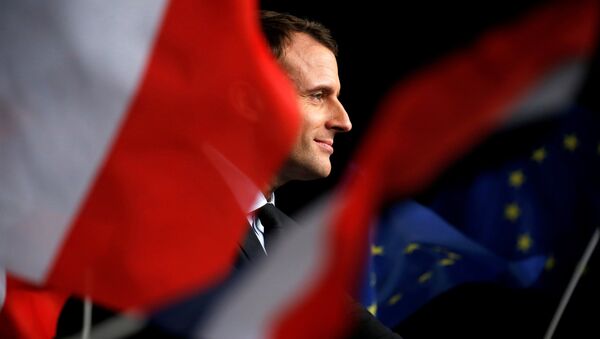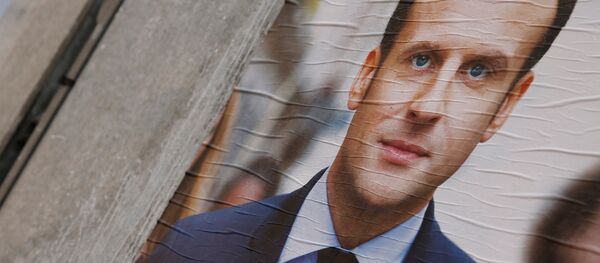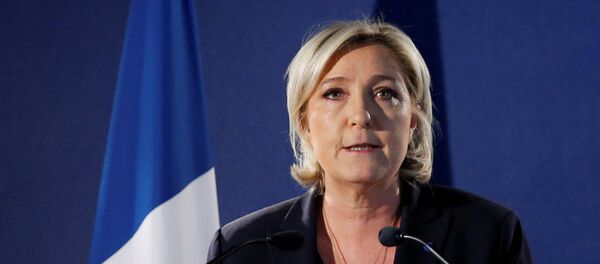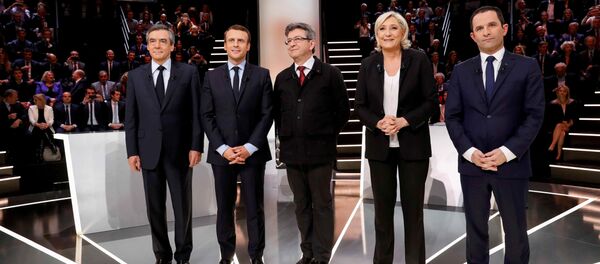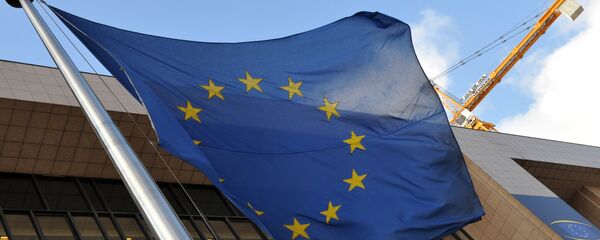"Previously an adamant supporter of 'European values' and France's membership in the EU, he unexpectedly tried to saddle up the idea of Euroskepticism, which his opponent Marine Le Pen, the leader of the National Front, rests upon," says his opinion piece for Sputnik.
The comments come in the follow-up to the recent remarks of Macron that the EU "must reform or face the prospect of "Frexit."
"I'm pro-European; constantly during this election I defended the European idea and European policies because I believe it's extremely important for the French people and for the place of our country in globalization," Macron, leader of the recently created En Marche! (Forward!) movement, told the BBC on Monday.
"But at the same time we have to face the situation, to listen to our people, and to listen to the fact that they are extremely angry today, impatient and the dysfunction of the EU is no longer sustainable."
"So I do consider that my mandate, the day after [I'm elected], will be at the same time to reform, in depth, the European Union and our European project," the presidential nominee said.
"And I don't want to do so," he said. "Because the day after, we will have a Frexit or we will have [Ms Le Pen's] National Front (FN) again," he stated.
"If we didn't know for sure that these are Macron's words, we would have thought that this had been said by Marine Le Pen," Pshenichnikov says.
The leader of the National Front has capitalized on anti-EU sentiment, and has promised a referendum on France's membership. She has recently said that the bloc should be replaced by a loose alliance of European nations which could join efforts on projects corresponding with their national interests.
"The main problem of the European Union is exactly that it has become almost totalitarian," she said.
"Why has Macron made such a statement?" Pshenichnikov questioned in his article.
"In his interview with a British news channel, he hardly wanted to tell the United Kingdom, which had voted in favor of Brexit, that they, the French, are as independent as the British," he further adds.
More likely, he explains, Macron's remarks are a planned electoral "circus act" with are principally intended to attract supporters from his opponent Marine Le Pen, who are displeased with the EU membership.
He further noted that Macron had been an investment banker at Rothschild & Cie Banque, and had served as an unpopular Minister of the Economy, Industry and Digital Affairs under President François Hollande from 2014 until 2016. He meteorically broke into the country's political life and unexpectedly and dynamically built into the electoral campaign without any electoral program.
"His unexpected rise made many suggest that the main purpose of the 'Emmanuel Macron' project is to neutralize Euroskeptics François Fillon and Marine Le Pen," Pshenichnikov suggests.
Fillon has been neutralized using "extra-parliamentary" methods, Pshenichnikov; he was ridiculed for his love of expensive garments and for providing his wife with a dubious state job. Similar operations, however, he adds, have failed against Marine Le Pen. Hence "Monsieur Plexiglas" (as Macron is often referred to by his opponents) has calmly resorted to the theft of her most popular slogans.
His curators understand that too many voters now support Le Pen, and it is impossible to ignore. Not taking her into account could jeopardize the whole project to save the EU from collapse.
The European establishment need to maintain the status quo. And Macron has no other option left but to "dress up as Euroskeptic," the political scientist says. Hence a week before the second round Macron started voicing nearly the same opinions as Marine Le Pen.
"There is no doubt that in the event of his victory, Macron will forget about the 'reform of the EU' [platform] right away and will never recall it. Macron is a protégé of the European liberal establishment who see the EU with its forms of totalitarian leadership as a core of their policies. It would be absolutely absurd to reform those who have created you; who are now patronizing you and bringing you to the presidency," Pshenichnikov finally stated.
His view is echoed by French political analyst and journalist Marc Crapez, a member of the research group Sophiapol at Université Paris Nanterre, who told Sputnik France that Macron's words sound like political opportunism.
In a separate comment on the matter, Patrick Martin Genier, an expert on European and International Affairs at Sciences Po, the Paris-based Institute of Political Studies noted to Sputnik that Macron will always remain a pro-European politician and will never initiate a 'nay' referendum on the country's exit from the European Union.

